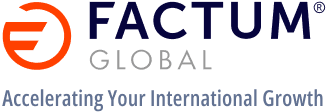Blog

By Francisco Gomez, Founder & CEO
Actionable Insight: Companies should actively invest in AI-driven solutions to streamline their operations and enhance their competitive edge. Embracing technological transformation is no longer optional but a strategic necessity for staying relevant in an increasingly digital world.
Sustainability is no longer a “nice-to-have”; it’s an economic imperative. The shift toward a greener future is accelerating, and businesses that fail to align with global sustainability goals risk falling behind. At Davos 2025, it became clear that the green transition presents a significant opportunity, particularly for companies seeking to expand in markets with strong sustainability commitments.
Adopting sustainable practices not only aligns with global climate initiatives but also positions companies to lead in markets that are increasingly integrating Environmental, Social, and Governance (ESG) factors into their regulatory frameworks.
Actionable Insight: Businesses must proactively integrate sustainability into their business strategies, focusing not only on compliance but also on creating long-term value through eco-friendly innovations. As the green transition unfolds, the ability to adapt will determine which companies remain competitive in the years to come.
In a highly interconnected world, global supply chains face a variety of risks—from geopolitical instability to natural disasters and global pandemics. The disruptions of recent years have underscored the critical need for resilience. At Davos 2025, industry leaders emphasized that businesses must diversify their supply sources, adopt cutting-edge technology for supply chain transparency, and build flexibility to quickly respond to disruptions.
Actionable Insight: In order to future-proof supply chains, businesses must move beyond traditional models and incorporate new technologies and strategies that enhance transparency and agility. Companies that proactively invest in building resilience today will be better prepared to manage uncertainties and ensure continuity across their global operations.
The future of work is here, and it’s evolving rapidly. The rise of remote work, combined with the influx of Gen Z into the workforce, is fundamentally changing how businesses manage global talent. Companies must adapt to this shift by fostering flexible, inclusive, and creative work environments that leverage diverse talent from around the world.
Actionable Insight: Businesses must rethink traditional workforce models and embrace diversity, flexibility, and cross-cultural collaboration. As the workforce becomes increasingly global, the ability to manage talent effectively across borders will be a defining factor in organizational success.
The global business landscape is shifting, with new opportunities emerging in regions such as Africa, Asia, and Latin America. At Davos, leaders highlighted that emerging markets offer tremendous growth potential, especially for companies that understand the local socio-political landscape, regulatory environment, and market dynamics.
Actionable Insight: Companies seeking international expansion should prioritize emerging markets and tailor their entry strategies accordingly. Understanding the unique dynamics of these regions will be crucial to unlocking long-term growth opportunities and minimizing the risks involved in new market entry.
Optimism for the Future: Seizing Global Opportunities
Are you ready to explore new opportunities for international growth, strengthen your supply chain, or adopt innovative technologies?
Let’s work together to turn the uncertainties of today into the business successes of tomorrow.


